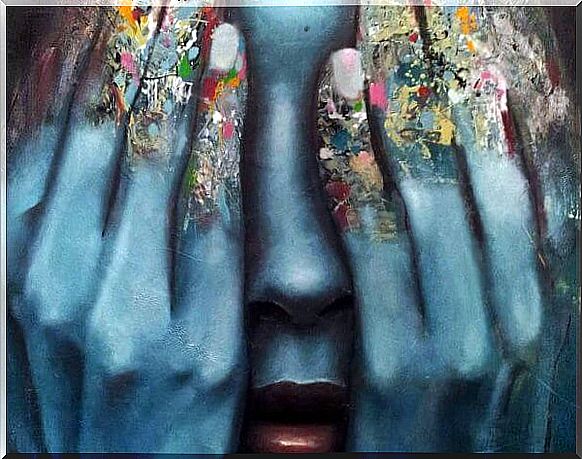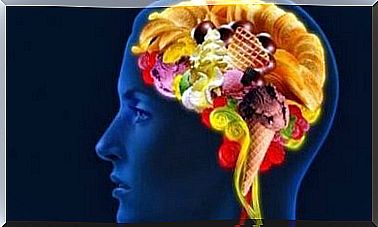Why You Do Not Feel Anything During A Depression

Many of us have experienced depression at some point in our lives. Some people experience a mixture of sadness and anger combined with depression. Others experience a total emptiness and lack of emotion – it is as if you do not feel anything.
Depression is like having lead all over your body and fog in your head. During the depression, everything seems erased while we hang in absolute nothingness.
Phillip Lopate – a well-known North American author – described this feeling in his overwhelming poem Dumbfounded. This poem tries to draw this feeling – what it is like to experience a total emotional void. In the poem, Lopate describes depression as walking through a field of ice.
Depression makes you completely indifferent to a freezing heart. Lopate leaves us with the vision of an anorexic illusion where we are isolated from the rest of the world.
One thing we need to understand about depression is that getting illnesses is just as complicated and multifaceted. Some people with this disease show clear symptoms, while others carry invisible signs for months and even years. It affects sleep, concentration, memory, movements and how we interact with our language.
We do not often talk about clinical depression; we do not always discuss that you as a patient do not feel anything. Instead of emotions, you experience a wall that completely disconnects you from the rest of the world and even yourself.

One reason you do not feel anything during a depression is that you have previously dealt with a situation that was so emotional and extremely intense that you did not know how to handle it. The clinical literature calls this an “emotional hangover”.
An emotional hangover is the result of having undergone something that completely takes away our control over our emotions. Furthermore, after a depression we can be left with other conditions, such as anxiety syndrome or unresolved trauma.
When we talk about depression, we must mention one of the preconceived notions that many have about it. People continue to associate this disease with grief. But many patients deal with layers of emotion. Depression is not just sadness; it includes pessimism, anger and depression.
It gives us a feeling of instability and an emotional neutrality that can give us physical symptoms that include migraines, muscle aches and digestive problems.
Patients who fit into this template may also suffer from hypersomnia, where they sleep 10-15 hours a day. Many also report that they can neither smile nor cry. It is as if the body and mind not only forget how to perform these actions, but as if they have completely forgotten the meaning behind these emotional gestures.
Next, we will talk about these devastating symptoms and their explanations.

Many of us have learned since childhood to hide or camouflage what hurts, disturbs, or worries us. This is one of the reasons why we do not feel anything in a depression. This is very common when we have a complex family situation or a stressful work environment.
These situations generate large amounts of anxiety, which can become chronic if the sufferer is driven into depression. We can get used to this feeling for months and years, without even realizing it. We forget how to express our anxiety, fear or remorse, and our brain begins to become numb.
A similar phenomenon is the classic mental fog, in which we react slowly to our surroundings and our attention drops, as well as our concentration and our memory.
If we read Phillip Lopate’s poem describing the intensity of his depression, we will notice something very revealing. In part of the poem, Lopate talks about how his father called him a “cold fish” since the age of nine. Lopade began to perceive himself based on his father’s criticism. His father mocked him for his shy behavior and appearance, and Lopate began to see himself in a negative way.
Something we often see in depression patients is a complex past with unresolved trauma, which can cause this disease to be characterized by emotional insensitivity.
Our brain is an amazing organ. In addition to being extremely sophisticated, it is also so complex because it is responsible for ensuring our evolutionary success. This complexity is why it is so challenging to solve brain-related problems, such as depression.
We must understand that no matter how many times we repeat that the brain is like a computer, it is not true. We are not machines. Emotions actually control the brain. Understanding their processes, how to deal with them and getting them to work in our favor is the only way out of prison that is depression.

Psychologists recommend starting sentences with the phrase “I feel” when we do not feel anything during depression. It is necessary to expose all layers of our emotions so that we can get to the root of the problem. We must explore the past trauma that haunts us so that we can heal and move on. Cognitive behavioral therapy can help us with this.
The moment we begin to let go of our anger, our fears, and our clouds of anxiety, we begin to walk on the path to recovery.








